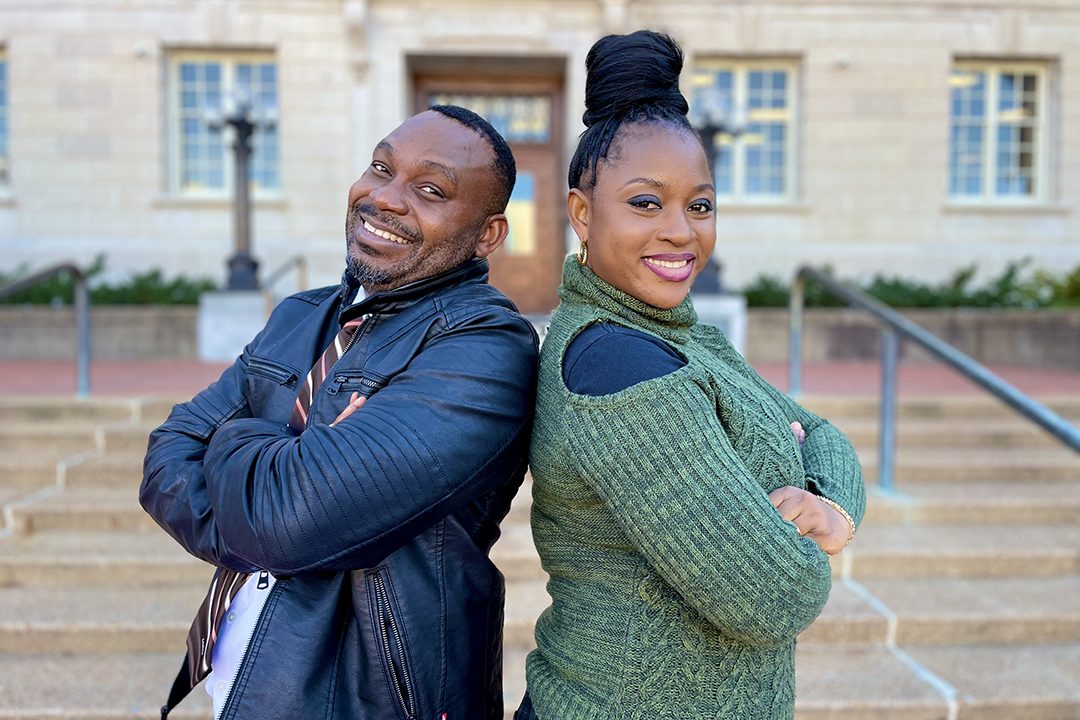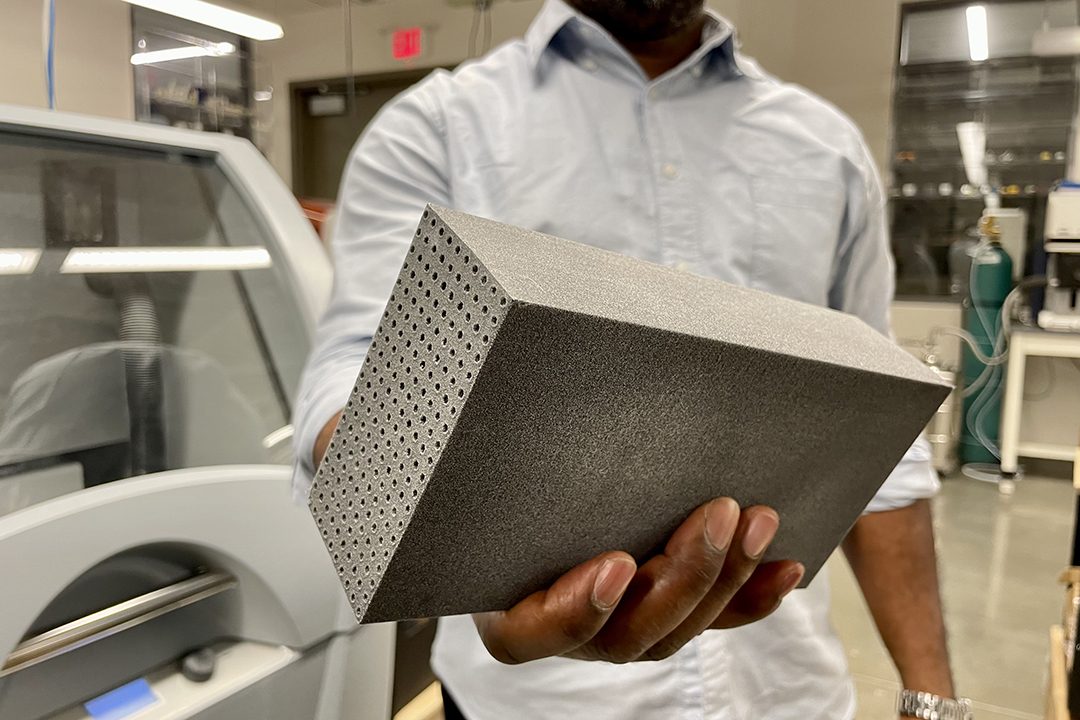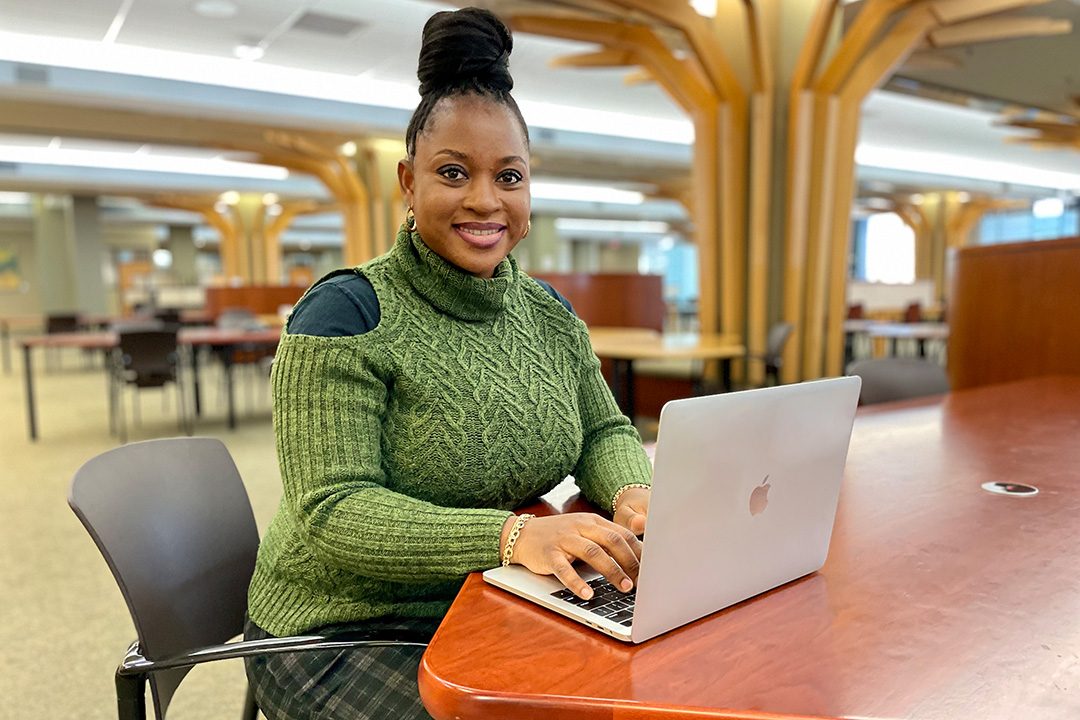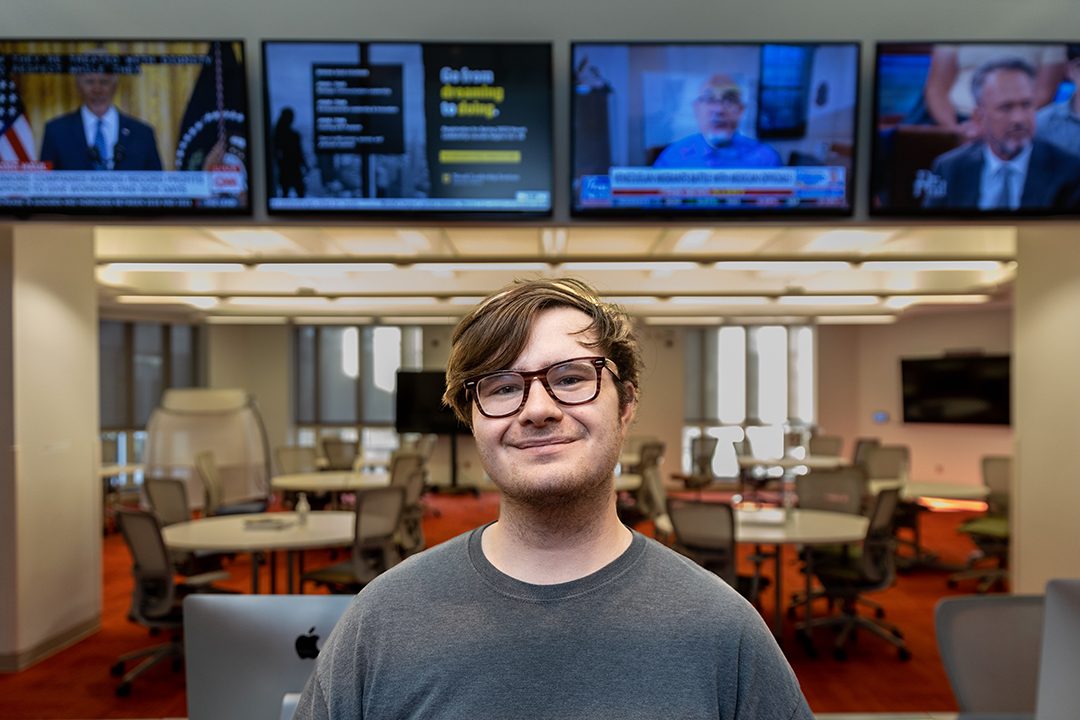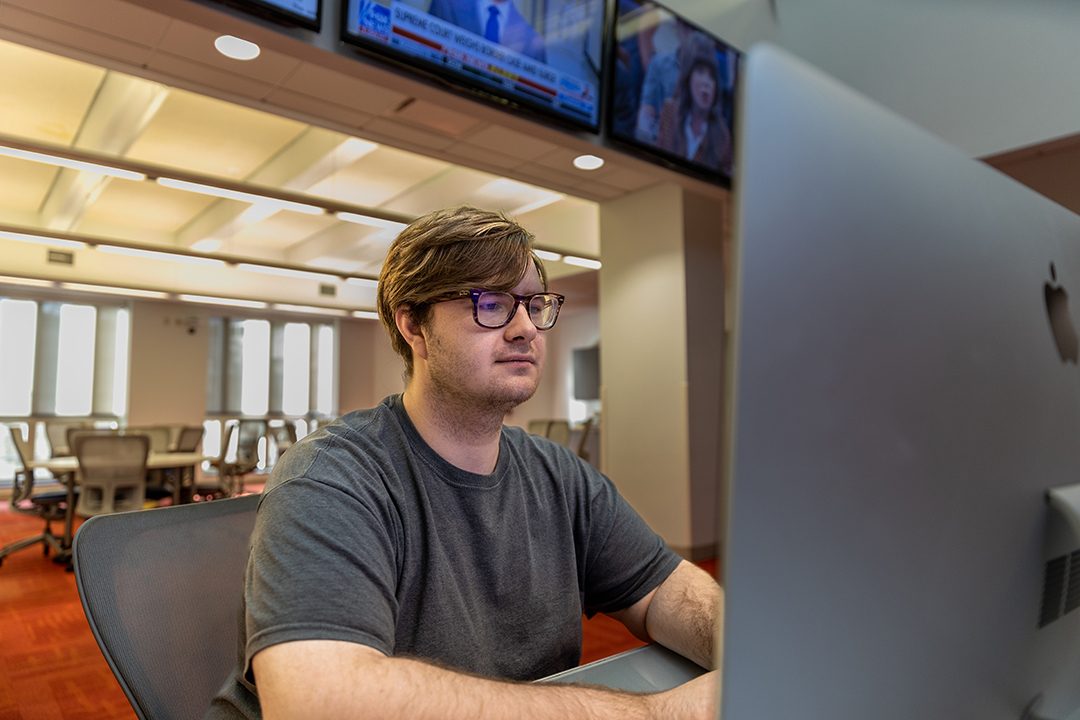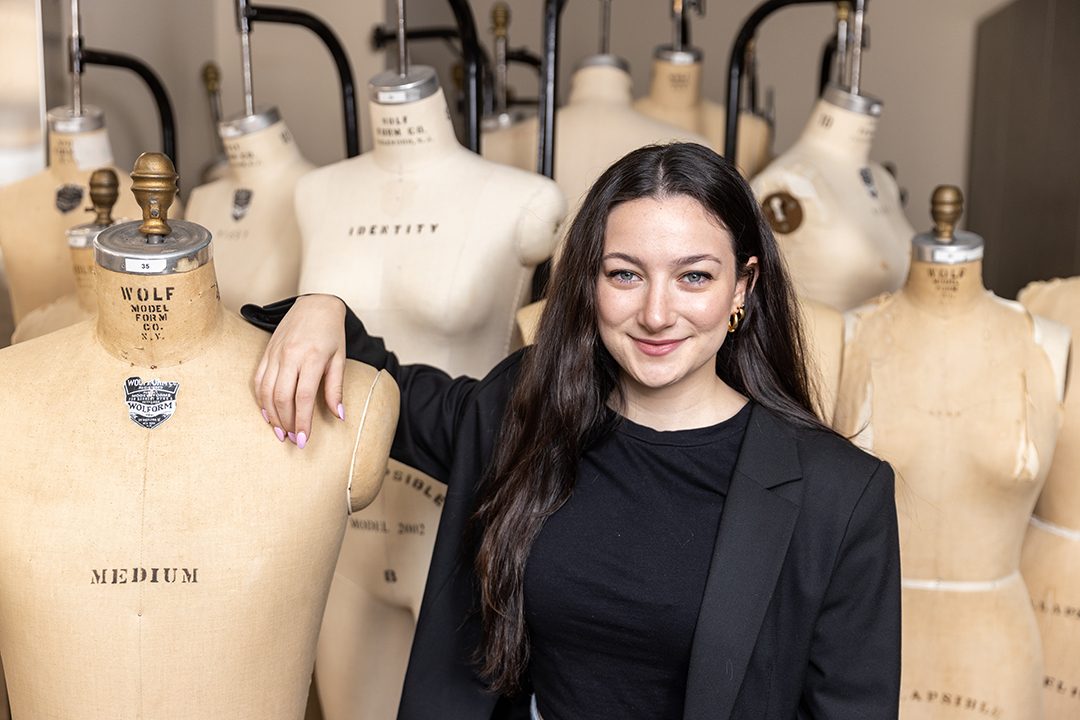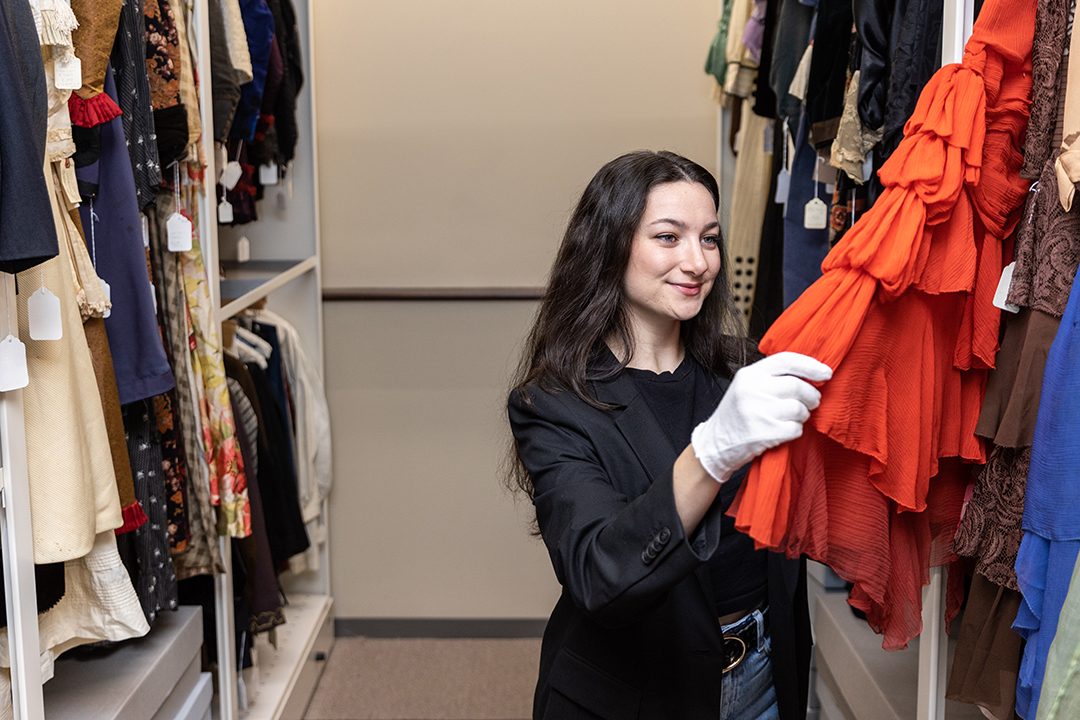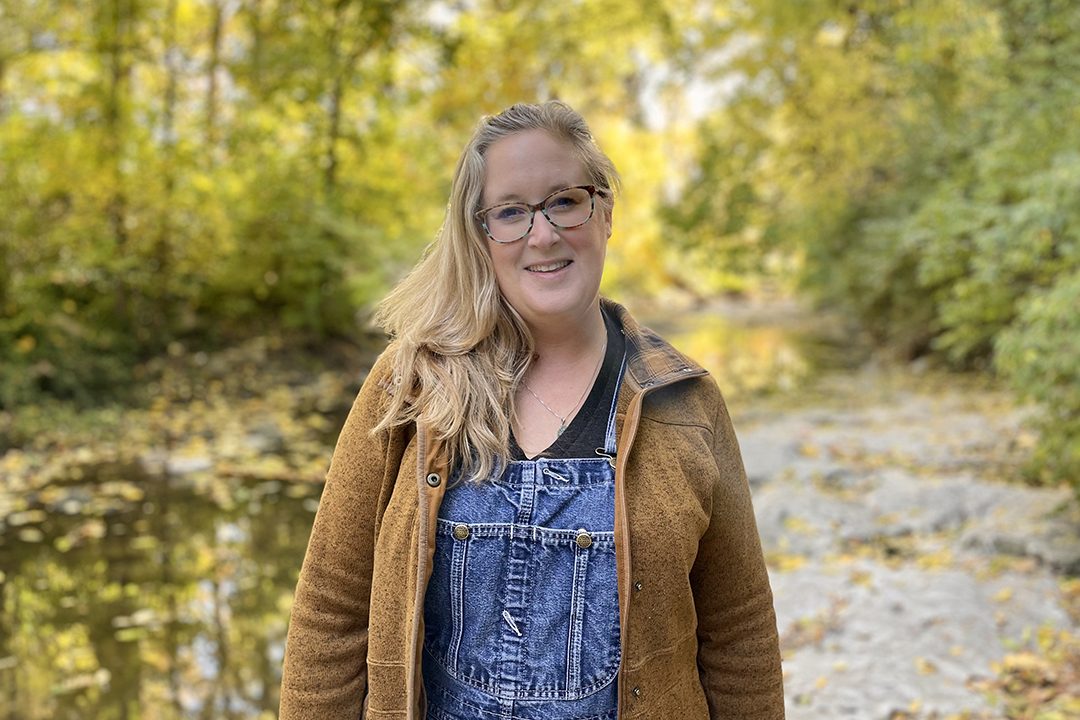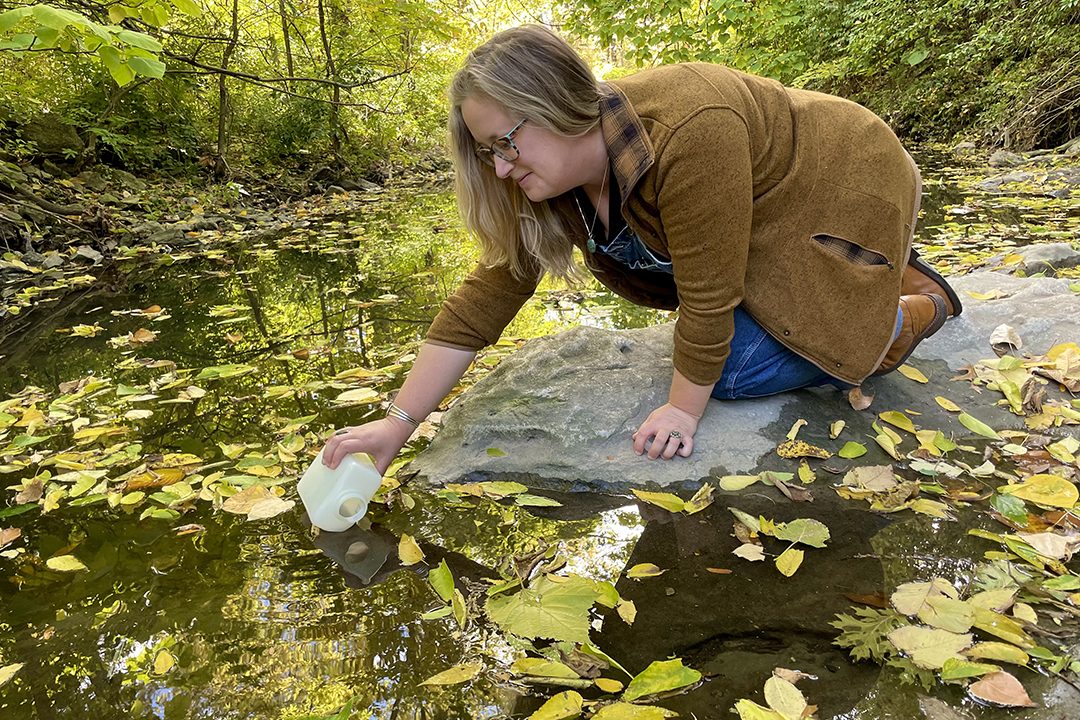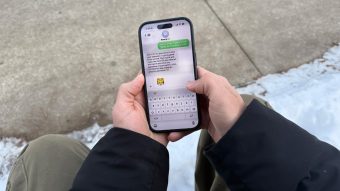Dec. 5, 2022
Contact: Marcus Wilkins, wilkinsm@missouri.edu
Photos by Abbie Lankitus
Excellence in research — a foundational tenet at the University of Missouri. As a “research one” university, a category measured by the Carnegie Classification of Institutions of Higher Education, MU maintains the highest commitment to advancing research and research opportunities at the undergraduate, graduate and faculty levels.
But what does research encompass? For many, it conjures images of microscopes, petri dishes, and white coats in a brightly lit space. While laboratory discoveries are certainly championed and celebrated, investigators at Mizzou probe innumerable topics — often in settings the untrained eye wouldn’t immediately associate with research.
Tiger research endeavors delve into the chemistry behind ice cream, the anthropology surrounding ancient mineral mines, the methodology driving corporate communications and the psychology motivating depictions of death in art — just to name a few.
Read on about a handful of students who are exploring topics outside the bounds of typical research.
Osasu and Jessica Osaze
The Osazes came to the U.S. from Nigeria in 2016, a move that emanated from Osasu reading a textbook written by Noah Manring, now dean and Ketcham Professor of the MU College of Engineering. Osasu penned a letter to the author and the pair established a rapport that led to the engineering student applying to the University of Missouri — a college in a state he previously didn’t know existed.
“I wrote Dr. Manring to tell him how helpful the book was,” Osasu said. “He replied, ‘Thank you — and by the way, what are you up to, academically? Would you consider Mizzou?’ So, I applied.”
Now a PhD candidate in mechanical engineering as part of the Southern Region Education Board (SREB) Doctoral Scholar Program, Osasu’s research focuses on energy efficiency and reducing the global carbon footprint — primarily by turning plastic waste into usable material. Waste plastic makes up 70% of trash in the ocean, and Osasu is studying a method of creating a 3D-printed hollow board out of recycled polypropylene filament, a material used in disposable water bottles. The goal is to use the board as building insulation.
“We cannot completely eliminate plastic, so it is critical to find ways to reuse it,” Osasu said. “Polypropylene by itself isn’t a very good insulator, but if we introduce air bubbles and turn it into a type of foam, it becomes a very durable insulation that can be used in the construction of energy efficient buildings. In addition to being good for the environment, this finding could also save the insurance industry billions of dollars.”
Osasu’s wife, Jessica, also found her academic calling at Mizzou. She arrived in Columbia with an undergraduate degree in English and literature and earned a master’s in social work at MU. After losing her beloved sister to cancer in 2020, she felt a calling to focus on health care. Now, as a Graduate Scholar of Excellence, she is poised to complete a second and third master’s degree in health administration and health informatics, along with a PhD in translational biosciences.
Jessica’s research focuses on making telehealth more accessible, especially for underserved populations who are historically reluctant to participate in medical research.
“COVID-19 proved the effectiveness of telehealth in helping to bridge disparities in health care access across populations,” Jessica said. “Because telehealth eliminates distance through technology, I believe we can get more Americans to be interested in research and help close the informatics gap when it comes to cancer.”
Brandon Ford
From the age of 10, Brandon Ford was an omnivorous news consumer. During high school in Lebanon, Missouri, he was obsessed with elections and the political process, and he craved academic challenges beyond what the local curriculum offered. So, when he was shopping for colleges and perusing the breadth of options at Mizzou, his eyes lit up.
It’s no surprise the ASH (arts, social science or humanities) Scholars program captured Ford’s imagination as a freshman. Originally a journalism major, Ford joined a research project that examines how marginalized groups are represented in the news media and how those portrayals impact media consumers.
“It’s fascinating how the media shapes so many of the ideas we have — even about ourselves and our groups,” Ford said. “We have found that Black-focused and Latinx-focused news sites, in general, offer more positive portrayals of minorities.”
Ford’s eclectic interests took him down many academic paths and eventually led him to religious studies in the College of Arts and Science. This fall, he received a full-ride scholarship to attend the School of Law starting in Fall 2023.
“I used to think research was a hard-science-only thing, so I never thought it was going to be something I did as a journalism student,” Ford said. “ASH exposed me to research in a field I was interested in, and it ultimately led to me wanting to become a judge. Judges are also legal scholars, and the undergraduate academic research I’ve done at Mizzou made me realize how much I enjoy it.”
Michelle Gershkovich
Michelle Gershkovich enjoys following threads to see where they lead — and not just because she is a textile and apparel management (TAM) major in the College of Arts and Science. Gershkovich studies fashion trend forecasting entities and their recommendations to the limited mobility market.
Fashion trend forecasting, which guides designers and mitigates investment risk for manufacturers, has existed since the 19th century. But Gershkovich’s research found it has paid little attention to garments designed for individuals with limited mobility.
Through a series of semi-structured interviews and surveys, Gershkovich learned that consumers in this specialized demographic are often limited to clothing designed for medical patients or items made with utility in mind rather than aesthetics.
“People with disabilities should be able to express themselves through style,” Gershkovich said. “Clothing manufacturers could be more inclusive, and there’s a huge market that doesn’t have the same fashion options.”
Gershkovich’s experience with undergraduate research has also helped inform her own business venture, ALLTER — an app that assists consumers in determining their preferred size before ordering professional uniforms online.
“Mizzou has supported my interests and even helped me fund my startup through two programs: Entrepreneur Quest and Women in New Ventures in Entrepreneurship and Technology,” Gershkovich said. “Because of my research, I am always considering different fabrics for different abilities. How stretchy is the material? How does something sit on the body for mobility? It has made me more inclusive in my thinking.”
Crystal Rein
As a student of limnology — the study of freshwater lakes, rivers and streams — Crystal Rein appreciates her moniker’s inherent humor; both her first and last names are synonyms for high quality H2O (rein is German for “pure”).
Despite Rein being her married name, Rein’s obsession with water dates to elementary school.
“In the fifth grade, I pulled an oceanography book off the shelf and devoured it in a week,” said Rein, a nontraditional student and a mom returning to school after a career in elementary education. “But obviously there are no oceans in Missouri. As a townie with connections to Columbia, I knew I couldn’t go down that path.”
With her only son raised and off to new adventures, Rein began her own quest for a bachelor’s degree in biological sciences and ultimately a master’s degree in the College of Agriculture, Food and Natural Resources’ water resource program. Working in the limnology lab co-run by Alba Argerich and Rebecca North, assistant professors of water resources, Rein’s research takes her to scenic Missouri locales to evaluate phosphorus and nitrogen content in the water — where imbalances can lead to environmentally destructive algae blooms.
“I chose this new degree path because I can’t think of anything more important to our survival than the clarity of our water,” Rein said. “We have this bank of data, and we can show people what is happening to decrease our water quality and what we must do to improve it. That’s exciting.
“Plus, I get to play in the water all day.”
